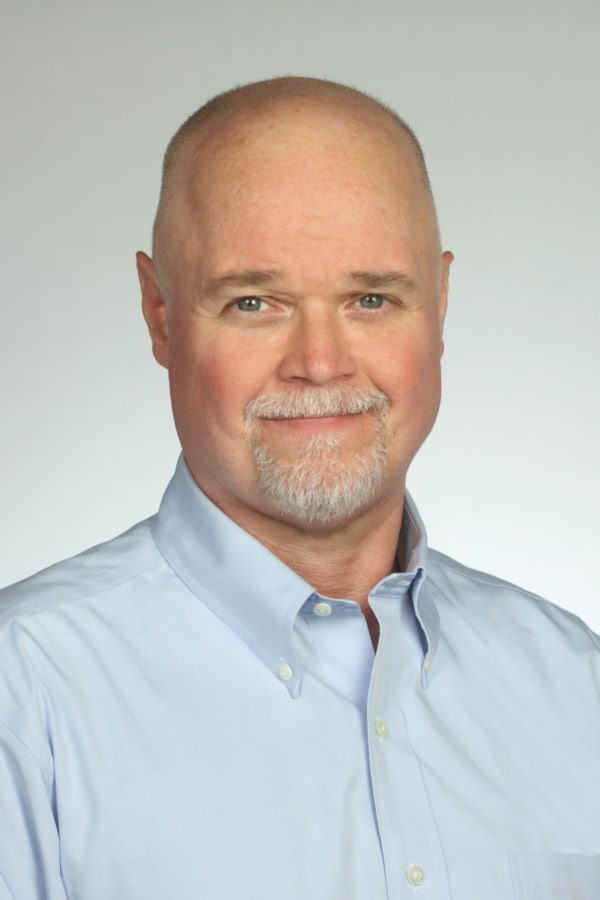Joseph (Joe) Hedrick is the Executive Director of the Type 1 Diabetes (T1D) Consortium at Critical Path Institute (C-Path). A public-private partnership, the T1D consortium membership is composed of industry and foundation members, as well as academic partners and advisors from the NIH. C-Path has aggregated T1D clinical data from the National Institute of Diabetes and Digestive and Kidney Diseases, as well as academic and industry members, and works with global regulators to achieve broad regulatory objectives that will advance therapies for T1D treatment and prevention. Prior to joining C-Path, Joe was the Venture Leader for Janssen’s T1D program. He was also a Senior Director for Cure and Prevent Therapies at JDRF and led new drug target discovery efforts at Merck and Schering-Plough. The author of more than fifty peer-reviewed research articles, reviews, and book chapters, he is also an inventor on more than twenty patents. Joe earned his doctorate degree at the University of California-San Diego and San Diego State University.
Meet the Team
C-Path is proud to attract top talent from across the world. This group of dedicated individuals are the lifeblood of our organization.
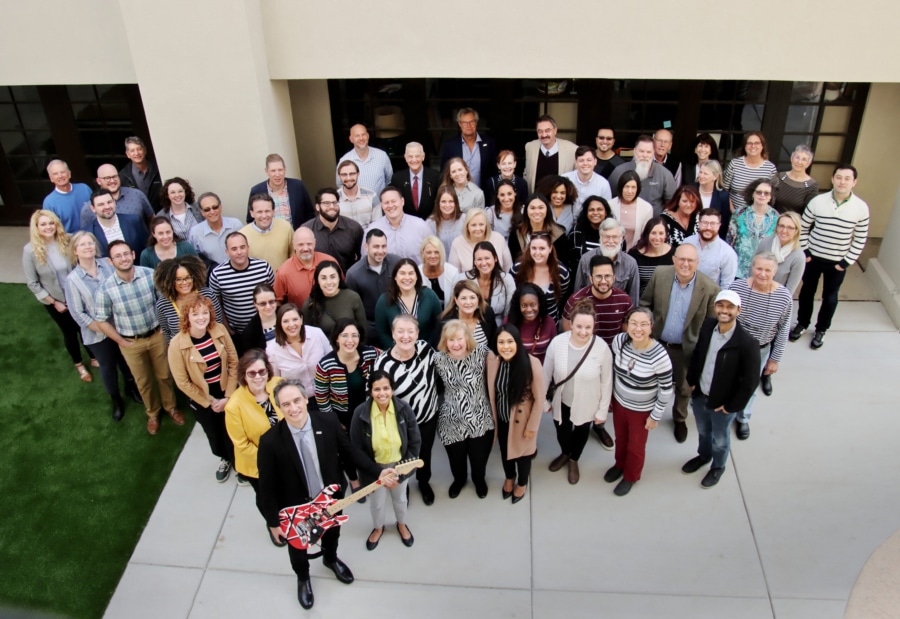
Leadership Team
Lewis Barbieri, JD

Lewis Barbieri graduated from St. John’s University, School of Law, in 1994, and was admitted to the New York Bar in 1995. He then worked at Pfizer Inc. in Manhattan for twelve years. During his time at Pfizer, Lew worked in the Contracts & Outsourcing group negotiating, and then managing others who negotiated, clinical trial agreements with academic sites, and service agreements with Contract Research Organizations (“CROs”) who were selected through a competitive bidding process to perform management and monitoring activities in support of Pfizer’s clinical trials. In 2006, Lew moved from New York City to Tucson and began nine years of employment as the Director of the Office of Research & Contract Analysis (“ORCA”) at the University of Arizona. In this role, Lew managed a department of seventeen people in their efforts to bring research funding into the university through the negotiation of all manner of agreements.
Ramona Belfiore-Oshan, PhD
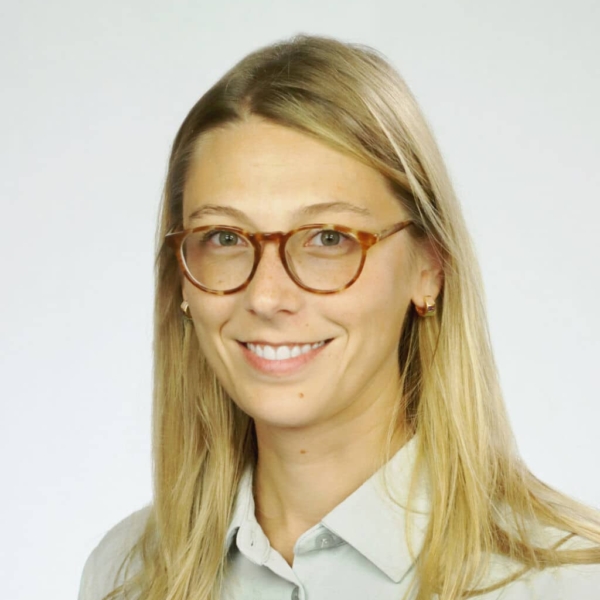
Ramona Belfiore-Oshan, PhD, serves as Executive Director of C-Path’s Duchenne Regulatory Science Consortium (D-RSC), providing overall leadership, administrative and scientific oversight of the consortium. Dr. Belfiore-Oshan completed her bachelor’s in biological science, master’s in molecular biology and PhD in neuroscience from the University of Catania (Italy). Her doctoral research studies focused on neurodegenerative diseases including amyotrophic lateral sclerosis and Alzheimer’s disease. Next, Dr. Belfiore-Oshan pursued a postdoctoral research position in neurology, at the Icahn School of Medicine at Mount Sinai while developing and applying skills in science communication, grantsmanship for research professionals, and scientific project management for academia and industry. Dr. Belfiore-Oshan joined C-Path in 2021 as the Associate Director for D-RSC and has supported consortium efforts to implement modeling and simulation work for multiple regulatory submissions. Her work with D-RSC is focused on shaping and pursuing the development and execution of current and future consortium activities with the goal of accelerating therapy development to address the urgent unmet medical needs in Duchenne muscular dystrophy and other dystrophinopathies.
Alexandre Bétourné, PhD, PharmD

Alexandre Bétourné, Ph.D., Pharm.D., is Executive Director for the Rare Disease Cures Accelerator-Data and Analytics Platform initiative and previously served as its Scientific Director. Dr. Bétourné works with the RDCA-DAP team to expand its reach into new diseases areas accessing new data and enhancing C-Path’s relationships within the rare disease community. He holds both a PhD and a PharmD from the University of Toulouse in France, has three patents, and has written multiple papers that intersect with several different rare disease areas. Before joining C-Path, he led a team of senior U.S. scientists, CMC and regulatory consultants at a small company developing therapies for amyotrophic lateral sclerosis (ALS).
Cheryl D. Coon, PhD

Cheryl D. Coon, PhD, is Vice President of the Clinical Outcome Assessment (COA) Program, overseeing the Patient-Reported Outcome Consortium, the Electronic COA Consortium, and the Rare Disease COA Consortium. Dr. Coon is a psychometrician with two decades of experience developing and evaluating COAs for use in constructing patient-centered endpoints. Prior to joining C-Path, she was a consultant, advising sponsors on the use, analysis, and interpretation of COAs in clinical trials. Her experience includes the statistical analysis of COA endpoint data and the communication of psychometric and efficacy evidence to regulatory authorities and other stakeholders. Dr. Coon is a recognized thought-leader in the field of COAs and seeks to generate evidence that allows the benefits of new therapies to be clearly communicated to patients and clinicians for informing treatment decisions. After receiving a BA in Psychology and French at the University of North Carolina at Chapel Hill (UNC-CH), Dr. Coon remained at UNC-CH to earn an MA and a PhD in Quantitative Psychology, during which time her research focused on item response theory and included early work on the Patient-Reported Outcomes Measurement Information System.
Sonya Eremenco, MA

Sonya Eremenco has over 25 years of experience in the development and evaluation of Patient-Reported Outcome (PRO) measures and other clinical outcome assessments (COAs), with a focus on multicultural development, linguistic validation and electronic implementation. Prior to joining C-Path, Sonya served as Director of ePRO New Products at Evidera where she led Evidera’s initiative to combine technology and PRO measurement expertise into a science-driven ePRO service. Prior to Evidera, she was Director of the Functional Assessment of Chronic Illness Therapy (FACIT) Translation and Formatting Services Department at the Center on Outcomes, Research and Education (CORE) at NorthShore Health System, which is now FACITtrans.org. Sonya has been active in advancing the science of PRO-based endpoint assessment through her service in scientific organizations, including chairing an ISPOR task force on the use of mixed modes of PRO data collection in clinical trials. Sonya received her undergraduate degree in cultural anthropology with a concentration in linguistics from Duke University and earned a Master of Arts in cross-cultural communication from DePaul University.
Maaike Everts, PhD
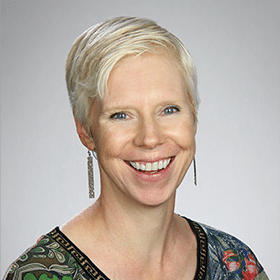
Maaike Everts, PhD, a pharmaceutical scientist with broad experience in drug delivery, discovery, and development, is Executive Director of the Critical Path Institute’s Translational Therapeutics Accelerator. Prior to C-Path, she had a leadership role with Parenteral Drug Delivery Solutions at Evonik Health Care, responsible for shaping the drug delivery technology and manufacturing platforms offered by the organization as well as positioning them in the marketplace. Before joining Evonik, Maaike was a full professor at the University of Alabama at Birmingham (UAB), in the School of Medicine, where she structured and lead the Alabama Drug Discovery Alliance, a venture between UAB and Southern Research, and the Antiviral Drug Discovery and Development Consortium, funded by the National Institutes of Health. She had been at UAB since 2002, initially as a postdoctoral scholar in its Gene Therapy Center, where she combined adenoviral based vectors with nanotechnology. She received her PhD in Pharmacokinetics and Drug Delivery from the University of Groningen in the Netherlands.
Sorin Fedeles, PhD, MBA
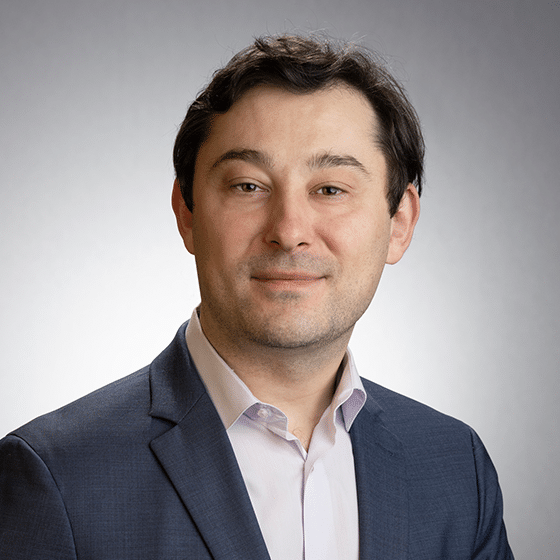
Dr. Sorin Fedeles is Executive Director of the Polycystic Kidney Disease Outcomes Consortium (PKDOC) at the Critical Path Institute. Prior to C-Path, Sorin was a scientist and faculty member at Yale University School of Medicine where he led a program focused on identifying new targets and pharmacological avenues for the treatment of Autosomal Dominant Polycystic Kidney Disease, the most common genetic cause of end-stage renal disease (ESRD). His previous work has led to publications as first/senior author in Nature Genetics, Journal of Clinical Investigation, JASN, etc., multiple grants from DoD, NIH, and the PKD Foundation (~$7.2+ million out of which ~$5 million as Principal Investigator), and two method-of-use patents. His academic responsibilities included leading research staff, writing grants/manuscripts, budget oversight, teaching, serving as a peer-reviewer on grants and journal submissions, and disseminating research via national/international conferences.
Sorin brings with him understanding of the drug development process, including preclinical research and clinical trials, cross-functional leadership, and expert knowledge of genetic kidney disorders, as well as a passion for identifying new drug development tools that can improve medical care for those living with PKD. Finally, as part of his business training, Sorin worked in academic technology transfer (as an Entrepreneur-in-Residence/Blavatnik Fellow; co-founded an academic start-up, TargetSite Therapeutics), pharma business development (Boehringer-Ingelheim), and venture capital (Vida Ventures Fellow).
Sorin obtained his undergraduate degree at Hampshire College, followed by a Masters, PhD, and MBA from Yale University. He remains affiliated with Yale University as an Assistant Professor (Adjunct).
Collin Hovinga, PharmD, MS, FCCP
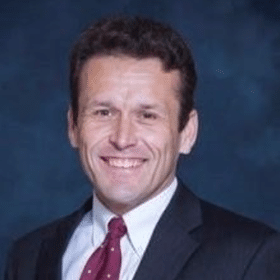
Collin Hovinga, PharmD, MS, FCCP, serves as Vice President of the Rare and Orphan Disease Programs at the Critical Path Institute overseeing C-Path’s Rare Disease Cures Accelerator-Data and Analytics Platform and the Critical Path for Rare Neurodegenerative Diseases public-private partnership. Dr. Hovinga completed his Bachelor of Science Degree in Biology and Doctor of Pharmacy degrees from Creighton University in Omaha, Nebraska. After which he pursued a Residency and Fellowship in Pediatric Pharmacotherapy with emphasis in Pediatric Neuroscience at the University of Tennessee, Memphis, LeBonheur Children’s Medical Center. He has had a Fellowship at the Food and Drug Administration Office of Clinical Pharmacology and a Masters of Epidemiology from the University of Tennessee Health Science Center. Dr. Hovinga has been active in studying factors that influence the efficacy, safety, and the pharmacology of antiepileptic drugs in children, patient adherence to medications, and acute seizure management. Dr. Hovinga is recognized as an expert in neuropharmacology.
Scottie Kern

Scottie Kern is a patient-based clinical technology expert with over 25 years of clinical research experience. He serves as the Executive Director of the eCOA Consortium at C-Path. Beginning his career in clinical data management roles at several CROs and pharmaceutical companies, Scottie was first exposed to electronic patient-reported outcome (ePRO) technology back in 2003. Enthused by the potential of this technology and its direct interaction with patients, Scottie took a role as the functional lead for ePRO at Wyeth’s Vaccine Research Unit in 2004, one of the earliest dedicated enterprise-level ePRO ownership roles in the industry. Establishing himself as an industry SME and thought leader on ePRO and other electronic clinical outcome assessments (eCOAs), he went on to serve as the Head of Patient Technologies and Global Head of ePRO at Pfizer until 2011. Scottie launched his own consulting company in 2013, via which he supported a range of pharmaceutical companies with eCOA strategy and implementation and joined C-Path in 2021.
Scottie graduated with a Bachelor of Science (Honours) degree in Human Biological Sciences from the University of Ulster in Northern Ireland.
Nicholas King, MS

Mr. King has held several roles during his tenure at C-Path. In 2010, he joined C-Path as a project manager for the Predictive Safety Testing Consortium (PSTC). As project manager and senior project manager, Mr. King managed projects within PSTC for several working groups, including the Hepatotoxicity, Pancreatic Injury, Skeletal Muscle Injury and Vascular Injury. He was promoted to scientific program manager and associate director for the Translational and Safety Sciences Program. In these roles, Mr. King provided input on regulatory science and analytical considerations for drug development tools and operations and logistics across the program. Since joining C-Path, Mr. King has contributed to more than 10 Letters of Support for safety biomarkers; co-chaired sessions at the PSTC Annual Workshop, the Society of Toxicology Annual Meeting, and the PSTC Japan Safety Biomarker Conference; and published articles on safety biomarkers. Mr. King’s graduate studies comprised research on cardiac and skeletal muscle physiology and mechanics. Prior to graduate school, Mr. King served as a Peace Corps Volunteer in West African country Cape Verde.
Amanda Klein, PharmD, CDCES

Amanda Klein, PharmD, CDCES, is Executive Director for the Transplant Therapeutics Consortium (TTC) at the Critical Path Institute (C-Path). She is a results-driven clinical pharmacist with over ten years of direct patient care experience. She collaborates with consortium leadership and an interdisciplinary team to accelerate the drug development process and address unmet needs in her current position. Before joining C-Path, she helped patients with complex chronic diseases (diabetes, cirrhosis, hepatitis C, hypertension, dyslipidemia, heart failure, renal disease, and comorbid mental health needs) in inpatient and ambulatory care settings. Dr. Klein received both a Bachelor of Science in nutritional sciences and a Doctor of Pharmacy (PharmD) from the University of Arizona. Dr. Klein completed both residencies at the Phoenix VA Health Care System in ambulatory care and mental health. She is a Clinical Instructor in the Department of Pharmacy Practice and Science at the College of Pharmacy and a designated campus colleague with the University of Arizona. Dr. Klein precepts pharmacy students, pharmacy residents, and medical residents. She is an active member of the American Pharmacists Association and serves on the Care of Underserved Patients Advocacy Committee. In addition, she serves as an Advisory Commissioner for the Arizona Health Education Center System and a member of the American Diabetes Association’s Overcoming Therapeutic Inertia workgroup. Her professional passions include polypharmacy, non-communicable disease management, rural health, and integrative care.
Rick Liwski

Richard Liwski is the Chief Technology Officer and Director of Critical Path Institute’s Data Collaboration Center. He is responsible for aligning C-Path’s technology strategy with the organization’s goals, for the architecture and development oversight of data sharing initiatives in support of C-Path consortia, and for the data curation, management and standardization activities to support all of the Data Collaboration Center projects. In addition, Richard is responsible for the development and implementation of partnership projects with the Clinical Data Interchange Standards Consortium (CDISC). He also serves as C-Path’s Chief Privacy Officer, responsible for the definition, implementation, training, and monitoring of C-Path’s policies for handling of clinical data.
Richard joined C-Path in 2014. Prior to C-Path, he spent 26 years at IBM that included roles in storage product development, functional area management, program management, brand/marketing management, and customer relationship management. His experience included assignments working with major U.S. pharmaceutical companies and healthcare providers as the technical focal point for their data storage needs.
Mr. Liwski received his Bachelor of Science degree in electrical engineering from New Mexico State University.
Shu Chin Ma, MSc, M.Phil, PhD, EMBA

Shu Chin Ma, MSc, M.Phil, PhD, EMBA, serves as C-Path Vice President, Model-Informed Drug Development and Quantitative Medicine. Shu Chin comes from a varied background of academia, regulatory, consultancy, and the pharmaceutical industry. In her previous industry roles, she served as the head of clinical pharmacology and pharmacometrics, leading teams of scientists in therapeutic areas including rare, neurodegenerative and metabolic diseases, and blood and solid oncology from FIH dose selection to NDA filings. Shu Chin was a part of the Certara Strategic Consultancy where she worked with various client companies on gap analysis, trial design, pharmacometrics analyses, and regulatory filings. She was an ORISE fellow at Division of Pharmacometrics at the U.S. Food and Drug Administration and worked as a primary reviewer at the office of generic drugs prior to joining Certara. Shu Chin received a Master of Science degree from the Department of Chemical and Biomolecular Engineering at Cornell University, a Master of Philosophy from the department of Electrical Engineering at Yale University and a PhD in Biomedical Engineering also from Yale. Dr. Ma is passionate about novel solutions to expedite safe drug development process.
Terina N. Martinez, PhD
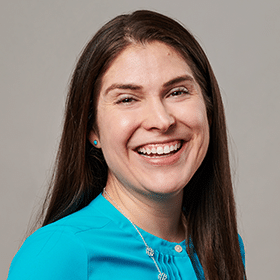
Dr. Terina N. Martinez is Executive Director of the Duchenne Regulatory Science Consortium (D-RSC) and the Critical Path to Therapeutics for the Ataxias (CPTA) at C-Path. Terina is a highly motivated neuroscientist with experience in science communication, research program management and leadership, biomarker and drug development in neurodegenerative diseases across diverse sectors including academia, industry, nonprofit foundations and patient advocacy groups.
Prior to joining C-Path, Terina was a Senior Associate Director, Research Programs at The Michael J. Fox Foundation for Parkinson’s Research in New York where she led the Foundation’s programs for preclinical tools and animal models, emerging targets and inflammation. Thereafter, Terina was a field application and collaboration scientist with Taconic Biosciences based out of Cambridge, MA, where she provided expert technical and scientific consultation across all research sectors for preclinical model selection, application, translational and IND-enabling study design, encompassing diverse disease and therapeutic areas.
Terina received her undergraduate degree in biology from the University of Dallas and earned a PhD in integrative biology from the University of Texas Southwestern Medical Center at Dallas, where she studied cellular and molecular neuroscience. She completed her postdoctoral training at the University of Pittsburgh.
Terina is passionate about improving the lives of people living with devastating neurodegenerative disease and is thrilled to lead the D-RSC and CPTA teams in executing C-Path’s mission to develop new approaches to advance medical innovation and regulatory science.
Lindsey Murray, PhD, MPH

Lindsey Murray, PhD, MPH, is Executive Director of the Rare Disease Clinical Outcome Assessment (COA) Consortium. Dr. Murray has more than 15 years of experience in health outcomes research. She specializes in quantifying the patient’s perspective of health, illness, and treatment through COA development, psychometric testing, and the design and analysis of clinical trials involving COAs. Prior to joining C-Path, Dr. Murray was an integral part of the EXacerbations of Chronic Pulmonary Disease Tool (EXACT®) – Patient-Reported Outcome Initiative team, taking over as Director of the EXACT PROgram. As Director, she had oversight of all EXACT licensing, translations, and analysis work being conducted on the EXACT and its derivative measure, the Evaluating Respiratory Symptoms in Chronic Obstructive Pulmonary Disease (E-RS®: COPD). Dr. Murray’s research activities also included serving as principal investigator to develop patient-reported outcome measures in several rare diseases, including neurotrophic keratosis and hypertrophic cardiomyopathy. She was also involved in adapting the E-RS: COPD for use in idiopathic pulmonary fibrosis (E-RS: IPF) and asthma-COPD overlap syndrome.
Dr. Murray holds a PhD from George Washington University in epidemiology. She received her MPH from George Washington University in epidemiology with a certificate in health promotion. Previously, Dr. Murray received a BA from the University of Virginia in Charlottesville, Virginia, where she double majored in anthropology and biology with a minor in German literature and language studies.
Cécile Ollivier, MS

Cécile Olivier as the Vice President of Global Affairs at C-Path. She is a senior health engineer with over 15 years of experience in global drug development, particularly for paediatric and rare diseases. Prior to joining Critical Path Institute, Cécile was with a medical technology company developing digital endpoints and for 11 years a scientific officer at the European Medicines Agency (EMA). At EMA, she provided technical and regulatory expert guidance on the design, conduct, and interpretation of paediatric developments across multiple therapeutic areas. Cécile has been recognized for her work leading the EMA extrapolation global strategy and activities including the EMA/FDA harmonization for Gaucher disease and global harmonization of criteria for development in paediatric Pulmonary Arterial Hypertension (PAH) with patients, healthcare professionals, FDA, and Health Canada.
She was also an expert in the E11 R(1) working group and the paediatric standing group for the International Conference of Harmonization (ICH).
Kevin Perkins, MSA, CPA

Kevin Perkins is a proven global finance executive and former member of the U.S. international affairs community with over 15 years of experience working in dynamic environments. Prior to C-Path he was Associate Vice President of Finance and Global Operations at the University of Arizona (UA) where he led finance and administration for all UA’s international education programs and campuses. During his tenure, UA was able to grow its presence into nearly 60 countries greatly expanding international student access to high quality, low-cost higher education. It was also at the UA where Kevin was instrumental to establishing and managing UA Global Operations, Inc., a new 501(c)(3) nonprofit global operations support organization of the university aimed to accelerate growth of global activities.
Prior to UA, Kevin worked for the Department of State and the U.S. Agency for International Development as a U.S. diplomat specializing in international finance and foreign aid operations. For nearly a decade he lived and worked abroad and led finance teams in Senegal, El Salvador, Bahrain and Guatemala where he supported multiple federal agencies and annual appropriations exceeding $100 million. Recognized as a leader, Kevin was recipient of multiple Meritorious Honor Awards during his time in the federal government.
Originally from Toledo, Ohio, Mr. Perkins attended the University of Cincinnati earning degrees in Accounting and International Business, has a Masters of Science in Accounting from the University of Arizona, and is a licensed Certified Public Accountant (CPA).
Klaus Romero, MD, MS
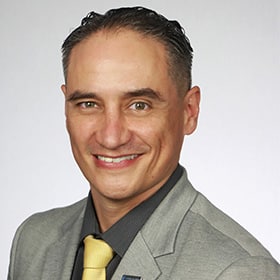
Dr. Klaus Romero is a prominent clinician scientist and scholar, who serves as both the Chief Executive Officer and Chief Science Officer at Critical Path Institute. As a recognized thought-leader, Dr. Romero established C-Path’s Quantitative Medicine Program and has been an instrumental leader in the growth of the organization’s portfolio of transformative consortia and public-private-partnerships across more than 16 therapeutic development areas. As both a scientist and an executive, Dr. Romero led the generation of actionable drug development tools in Alzheimer’s disease, which introduced a transformation in the drug development process for this indication. In tuberculosis, Romero’s leadership was instrumental in generating a drug development infrastructure that allowed the approval of the first new individual drug and the first new regimen for this disease, in more than 50 years. Dr. Romero’s leadership has also resulted in the transformation of therapeutic development paradigms for many other diverse areas, like polycystic kidney, Parkinson’s and Huntington’s diseases, as well as type 1 diabetes prevention, kidney transplantation, Duchenne muscular dystrophy, and several other rare and orphan indications. As a trained clinical pharmacologist and epidemiologist, Dr. Romero is a fellow of the American College of Clinical Pharmacology, a founding member of the International Society of Pharmacometrics, as well as a member of the American Society for Clinical Pharmacology and Therapeutics, and the International Society of Pharmacoepidemiology. He is also an Associate Research Professor at the University of Arizona, as well as an Adjunct Professor at the University of Southern California and Arizona State University.
Marco Schito, PhD

Marco Schito, PhD is Executive Director of C-Path’s CURE Drug Repurposing Collaboratory and an Adjunct Professor at the University of Arizona, James E. Rogers College of Law. His work aims to discover potentially safe and effective repurposed therapies for diseases with high unmet medical need by capturing and sharing global, real-world clinical data. Prior to joining C-Path, Dr. Schito was a Senior Scientific Officer at the Division of AIDS, NIH where he wrote and managed point-of-care diagnostic contracts for developing HIV viral load assays in low-resource settings, stood up a fully-characterized HIV global viral diversity panel program, and launched a research initiative to standardize the measurement of mucosal immune responses in HIV clinical trials. During his intramural tenure at the National Cancer Institute, Dr. Schito led the in vivo modeling of anti-retroviral zinc finger inhibitors, characterized TCR transgenic murine models, and the immune characterization of mice deficient in p53 phosphatases (PPM1D). Over the past decade, he established data knowledgebase to enable the use of Next Generation Sequencing platforms to quickly and accurately identify efficacious tuberculosis drug regimens. This platform is now being used by the World Health Organization for their global genomic drug surveillance program. Dr. Schito received his PhD from the Ontario Veterinary College at the University of Guelph, Canada in immuno-parasitology.
Diane Stephenson, PhD

Dr. Diane Stephenson is a neuroscientist by training with 30 years combined experience in academic neuroscience and drug discovery. She is passionate about translational science and is dedicated to the discovery of therapies to treat diseases of the nervous system. In her academic career, Diane focused her research on Amyotrophic Lateral Sclerosis and Alzheimer’s disease. While in industry she focused on drug discovery for Alzheimer’s disease, stroke, and Parkinson’s disease. Diane has over 55 scientific publications and six patents in the neuroscience area. Her specific areas of technical expertise include neuroimaging, neuropathology, and animal model characterization. As an ambassador for public-private partnerships, she has initiated numerous external academic collaborations including worldwide alliances. Diane received her undergraduate degree in Biochemistry at University of California, Santa Barbara and her PhD in Medical Neurobiology from Indiana University. In her current role, Diane leads multidisciplinary teams comprised of academic experts, industry scientists, patient advocacy groups, and regulatory experts collectively aimed at accelerating treatments for patients with neurodegenerative diseases.
Kanwaljit Singh, MD, MPH

Kanwaljit Singh, MD, MPH is the Executive Director of C-Path’s International Neonatal Consortium (INC) and Director of Pediatric Programs in Tucson, Arizona. Dr. Singh comes to C-Path from University of Massachusetts Medical School (UMass), Worcester, MA, where he worked for more than seven years as Instructor of Pediatric Neurology. At UMass, Dr. Singh’s research focused on evaluating novel treatment options for Autism Spectrum Disorders (ASD) and evaluating the safety and efficacy of a small molecule (Sulforaphane) present in broccoli sprouts in the treatment of ASD. Dr. Singh has also done extensive research and has numerous publications in pediatric epilepsy. Before UMass, he worked in ASD research at Lurie Center for Autism at Massachusetts General Hospital/Harvard Medical School in Boston. In addition to his research work, Dr. Singh also served on the IRB committees at Harvard Medical School and interacted with regulatory authorities, including the FDA. His experience also includes the testing of medical devices in hypertension and diabetes mellitus.
Kristen Swingle, MS

Kristen Swingle is responsible for the daily operations of the organization as well as developing and implementing C-Path’s strategy and goals. She manages the organization’s finances, human resources, facilities, communications, information technology, and personnel.
Before joining C-Path, Mrs. Swingle served as Vice President of Operations for CBR, a part of California Cryobank Life Sciences, where she oversaw stem cell manufacturing and quality operations and served as the site head for the Tucson facility which houses a stem cell laboratory, cryobank, and call center operations. She brings nearly two decades’ worth of experience in the medical and molecular sciences industry to bear in her role as Chief Operating Officer and President. Additionally, she has served as AZ Bio Board of Directors Chairwoman for nearly five years and is a member of Women Business Leaders of the U.S. Health Care Industry Foundation.
Swingle holds a Bachelor of Science degree in Biology from Northern Arizona University and a Master of Science, Medical Sciences from Texas A&M University.
Ramona L. Walls, PhD
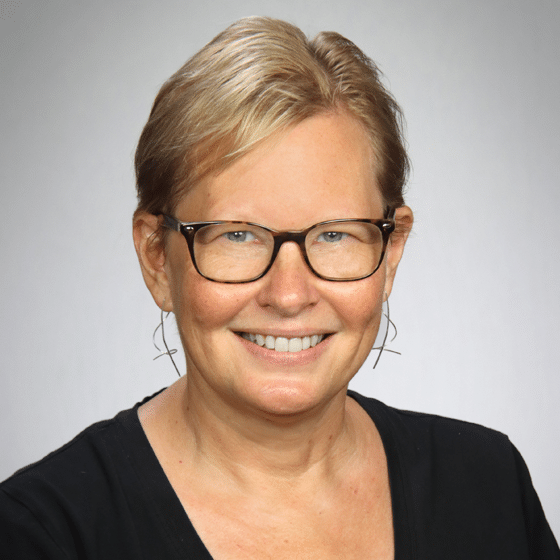
Ramona L. Walls, PhD, is the Executive Director of Data Science at the Critical Path Institute (C-Path). In this role she oversees multiple efforts including the development of C-Path’s Data and Analytics Platform, expansion and modernization of C-Path’s data integration pipeline to encompass new data types such real world data, and development of a rare disease knowledge graph. Walls joined C-Path in December 2020 as a Data Scientist in Ontologies, Standards, and Metadata (OSM). In 2021 she was promoted to Associate Director of Data Science, where she led a new OSM team that introduced the use of ontologies for data integration to C-Path. Before joining C-Path, Walls was Assistant Research Professor in the Bio5 Institute of the University of Arizona, where her research focused on semantic data integration, ontology design, and management of large and dispersed datasets. She has been Principal Investigator on multiple grants from the National Science Foundation and other funders and has published over 50 peer-reviewed papers in fields as diverse as rare diseases, environmental health, evolution, biodiversity, sustainability, and space situational awareness. Walls is on the steering committee of the Clinical Research Data Sharing Alliance (CRDSA), is a board member and active technical contributor to the Genomics Standards Consortium (GSC), and is a founding member of the OBO Foundry Operations Committee. Walls received a Bachelor’s degree in Environmental Resource Management and Horticulture at Penn State and a PhD in Ecology and Evolution from Stony Brook University. After a post-doc at the New York Botanical Garden, she joined the iPlant Collaborative, now CyVerse, where she led initiatives related to integrating, managing, and publishing big data. She is passionate about data science, data integration, data management, and using those skills to make the world a better place.
Google scholar profile: https://scholar.google.com/citations?hl=en&user=rEhRmsYAAAAJ
Board of Directors
Bonnie Allin

Bonnie A. Allin is a committed community leader in the Southern Arizona region. Allin is dedicated to the Critical Path Institute’s mission.
Allin retired as President & CEO of the Tucson Airport Authority in 2019 after a distinguished 39-year career in the aviation industry, including 17 years as CEO. Since her retirement, Allin has focused on career development, strategic planning and aviation management. In addition to her aviation career in Arizona and Texas, she served on numerous community and industry boards and councils, including as Chair of Tucson Chamber of Commerce, Chair of the American Association of Airport Executives, (AAAE) and 10 years as Chair of the International Association of Airport Executives (IAAE). Allin was called upon by a U.S. House subcommittee to testify and has served in numerous advisory roles as a representative of airports. She served as Chair of the Governor’s Aviation Task Force (AZ), and on Congressman Barber’s Women’s Leadership Council.
Bonnie has a B.B.A. in Finance. She is an Alumni of Leadership Texas. Allin holds the distinguished designation of Accredited Airport Executive. Allin has received numerous awards including recognition with the AAAE’s President’s Leadership and Distinguished Service Awards, ARN’s Airport Director of the Year, University of Arizona Eller College of Management Leadership Award and is a YWCA Women in Careers Hall of Fame Inductee.
Mara G. Aspinall, MBA

Mara G. Aspinall is a healthcare industry leader and pioneer committed to active civic involvement. She is Managing Director and Co-Founder of BlueStone Venture Partners, a venture fund investing in life sciences technology companies in the U.S. Southwest. She is also CEO of the Health Catalysts Group, a consulting firm dedicated to the growth of health information technology and diagnostics firms, publishing the popular Health Catalysts Diagnostics Year in Review. She is a member of the Board of Directors of Abcam plc (ABC), Allscripts (MDRX), Castle Biosciences (CSTL), Orasure (OSUR), and Blue Cross Blue Shield Arizona.
Most recently, Aspinall was certified in Cybersecurity Oversight from Carnegie Mellon University.
Prior to founding BlueStone, Aspinall had extensive experience in the risk-based capital industry. She has served as advisor on life sciences transactions for large venture capital and private equity firms. At BCBS Arizona, Aspinall chaired the Board of their strategic corporate venture fund, Trinnovate Ventures.
As President and CEO of Ventana Medical Systems, a billion-dollar division of Roche Tissue Diagnostics, Aspinall led her world-class team to new financial success, more than two dozen major instrument and assay launches as well as global leadership in companion diagnostics.
Previously, she served as President of Genzyme Genetics and Genzyme Pharmaceuticals. Genzyme Genetics grew into the country’s leading diagnostic testing company and was sold to LabCorp for $1 billion.
A leader in educating payers and policymakers on personalized medicine, she served on the Health and Human Services Secretary’s Advisory Council on Genetics, Health & Society (SACGHS) in the Obama and Bush administrations. With a passion for education about the importance of diagnostics in health care, Aspinall co-founded the School of Biomedical Diagnostics at Arizona State University, the first and only program dedicated to Diagnostics as an independent discipline. ASU awarded their first Master degrees in Diagnostics in 2015 and has 120 students matriculating this year.
In addition to her role on the C-Path Board, Aspinall was named Arizona Biosciences Leader of the Year by the Arizona Biotechnology Association and one of “100 Most Inspiring People in Life Sciences” by PharmaVOICE magazine and one of Women Inc’s Most Influential Corporate Board Directors. She started her business career at the strategic consulting firm Bain & Company. Aspinall holds an MBA from Harvard Business School and a BA from Tufts University.
Karen Bernstein, PhD

Karen is co-founder and chairman of BioCentury Inc. and was Editor-in-Chief from October 1992 to August 2012. She is a director at Ovid Therapeutics Inc., which is focused on developing drugs for orphan diseases of the brain, and at Codiak BioSciences Inc., which is pioneering exosome research and development to create an entirely new class of medicines, exosome therapeutics. She is on the board of trustees of the Keck Graduate Institute of the Applied Life Sciences. She serves on the board of overseers of Scripps Research and on the boards of the Critical Path Institute and Mind What Matters, a non-profit that provides support for Alzheimer’s family caregivers.
Karen holds a PhD in political science from Stanford University and a B.A. in politics and history from Brandeis University, where she served for many years as a member of the Brandeis University Science Advisory Council.
In 2005, the annual gathering of biotechnology chief executive officers at The Biotech Meeting in Laguna Niguel, Calif., inducted Karen into their Hall of Fame, citing her lifetime contribution to the biotech community. In 2007, Karen received a Special Recognition award at the American Liver Foundation’s Salute to Excellence, honoring individuals who have made an outstanding contribution to biotechnology and medical innovation. In 2013, she was named as one of the 100 Women of Influence in Silicon Valley by the Silicon Valley Business Journal. In 2015, Scientific American named Karen as one of The WorldVIEW 100 most influential people in biotech today. In 2016, she was named Commentator of the Year by the European Mediscience Awards.
Louis Breton

Louis Breton is chief executive officer and a co-founder of Rampart Bioscience. Mr. Breton has more than 25 years of biotechnology leadership, most recently serving as CEO of Calimmune, a gene therapy company he launched in 2006 with Nobel Laureate David Baltimore, Ph.D., to address chronic and currently incurable diseases including HIV and sickle cell anemia. (Calimmune and its proprietary stem cell gene therapy platform were acquired in 2017 by CSL Behring.) Over the course of his career, Mr. Breton has built three life science companies and contributed to more than 20 product launches, as well as numerous licensing deals and regulatory negotiations. Named as one of the top 100 most inspirational and extraordinary leaders in the life sciences industry by PharmaVOICE magazine, Mr. Breton is a current or former board member of more than a dozen biotech and high-tech companies and is actively involved in numerous charitable projects. He holds a B.S. in Molecular and Cellular Biology from University of Arizona.
M. Wainwright Fishburn, Jr.
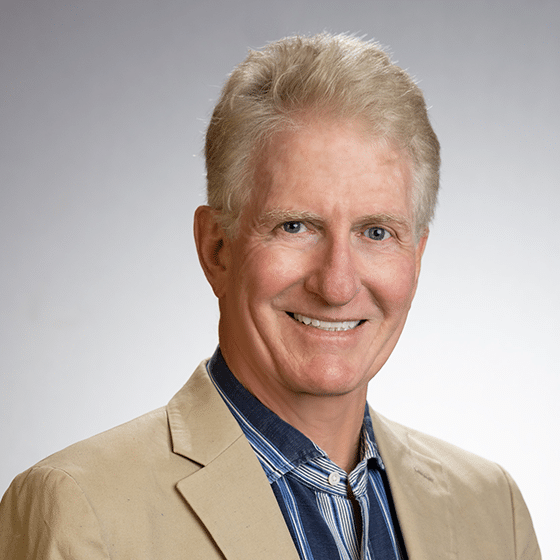
Wainwright Fishburn is a prominent venture capital lawyer and Global Chair of Cooley’s Digital Health group.
As a recognized thought-leader, Wain is a frequent speaker at programs addressing industry issues, including at the International CES Digital Health Summit, CNS Summit, Impact Forum, the Samsung: Health + Tech Conference, and the Body Computing Conference. Wain chairs the Digital Health Track at the BIO International Annual Meeting.
As both a founder and counsel, Wain has worked with venture-backed companies across a variety of fields. In the digital health sector, clients span across SaMD/regulated devices, remote care and delivery, genomics, biopharma, consumer health, and tech-enabled services. Wain also serves as Chairman of the Critical Path Institute, a public-private partnership created in part by the FDA, dedicated to integrating advances in the development pathway with a focus on advancing digital tools.
Wain is past Chairman of the NCI designated Sanford Burnham Prebys Medical Discovery Institute. He is a member of the Executive Committee of the UCSD Moores Cancer Center where he is afforded a clinical perspective on breakthroughs in precision medicine.
Wain is a co-founder of seven companies, two of which went public. Wain is an avid cyclist and while far from an elite athlete, recently cycled 625 miles around the Cape of South Africa and Tour de France routes.
Timothy R. Franson, MD
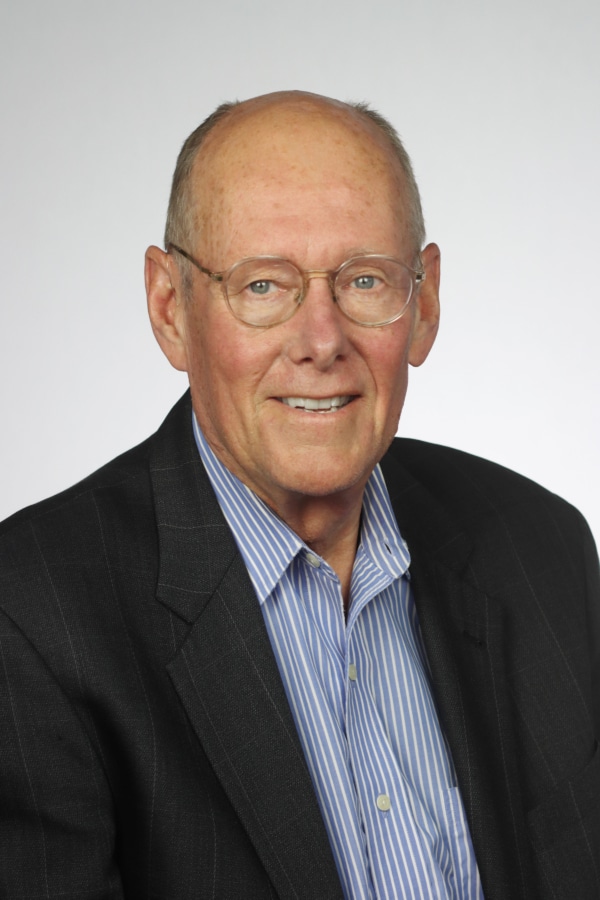
Dr. Timothy R. Franson is a Principal with Faegre Baker Daniels Consulting where he leads the firm’s life sciences regulatory consulting practice. He has extensive clinical and regulatory experience in all pre- and post-approval phases of pharmaceutical development relating to interactions with the FDA for policy and product issues, as well as with global regulators. He also serves as the past president of the U.S. Pharmacopeial Convention and on the Executive Committee of its Board of Trustees.
Dr. Franson was the founder and president of Franson PharmAdvisors LLC, a clinical and regulatory pharmaceutical development consulting firm that merged with FaegreBD Consulting. He then served as Chief Medical Officer for YourEncore. Prior to this, Dr. Franson was Vice President of Global Regulatory Affairs at Lilly Research Laboratories (Eli Lilly and Company) after serving as their Vice President of Clinical Research and Regulatory Affairs-U.S.
Dr. Franson was co-chair of the joint FDA-industry working group addressing clinical aspects of the FDA Modernization Act of 1997, including the Prescription Drug User Fee Act (PDUFA) renewal. He also co-chaired an FDA-industry safety interventions working group, was a member of the AAMC-PhRMA Clinical Trials Forum and of the Regulatory Advisory Board for the Centre for Medicines Research International. He recently served on the NIH-NCATS Treatment of Rare and Neglected Diseases (TRND) review panel.
Dr. Franson has authored more than 50 articles in the fields of infectious disease, epidemiology, pharmacoeconomics, and antibiotic utilization, as well as four book chapters relating to innovation policy topics. He also served as a member of the Board of Directors for Myrexis (formerly Myriad) Pharmaceuticals from 2010 to 2013.
Dr. Franson received his BS in Pharmacy from Drake University, his MD from the University of Illinois College of Medicine, Internal Medicine training from the University of Iowa, and completed a Fellowship in Infectious Diseases and Epidemiology at the Medical College of Wisconsin.
Robert Hemmings, MS

Robert Hemmings, MS is currently partner at Consilium Salmonson & Hemmings and has deep expertise in global clinical trial design, critical appraisal of clinical trial data and regulatory affairs. He was head of the group of statisticians and pharmacokineticists at the Medicines and Healthcare Products Regulatory Agency (MHRA) in the UK for nearly 20 years. He has been a member of the Committee for Medicinal Products for Human Use (CHMP) at the EMA for 11 years, has chaired EMA’s Scientific Advice Working Party for eight years, and chaired and served on EMA’s groups for biostatistics, modelling and simulation and extrapolation. Hemmings also represented the EU and was the Rapporteur for the revision of the ICH guideline E9 (R)1 addendum on estimands and sensitivity analysis in clinical trials, to the guideline on statistical principles for clinical trials. Additionally, he has involvement in multiple initiatives related to innovation in clinical trial design and regulatory strategy including, EMA’s Priority Medicines (PRIME) scheme for unmet medical needs, adaptable pathways, and accelerated access pathways in the UK.
Kay Holcombe, MS

Kay Holcombe recently retired as Senior Vice President for Science Policy at BIO, the Biotechnology Innovation Organization. Prior to that, she was Vice President for Government Relations at Sanofi-Genzyme; Executive Vice President of Policy Directions Inc., a policy advisory and advocacy firm; professional health legislative staff and senior health policy advisor for the House of Representatives Committee on Energy and Commerce; professional health legislative staff for the Senate Committee on Labor and Human Resources; Deputy Associate Commissioner for Legislative Affairs, US Food and Drug Administration; Executive Vice President of the Foundation for Biomedical Research; Associate Director for Public Health Legislation, HHS Office of the Assistant Secretary for Legislation; Deputy Associate Administrator for Planning, Evaluation, and Legislation, Health Resources and Services Administration; Special Assistant to the Director, Division of Legislative Affairs, National Institutes of Health; Executive Secretary, National Heart, Lung, and Blood Institute National Advisory Council; and NHLBI researcher.
In addition to being a member of the C-Path Board, Kay is a member of the board of the Reagan-Udall Foundation for the FDA and the National Blood Clot Alliance.
She received her BS in chemistry education from the University of Illinois and her MS in chemistry from the University of Virginia. She graduated with honors and was elected to Phi Beta Kappa, Phi Kappa Phi, and Iota Sigma Pi.
Peter Barton Hutt, LLB, LLM
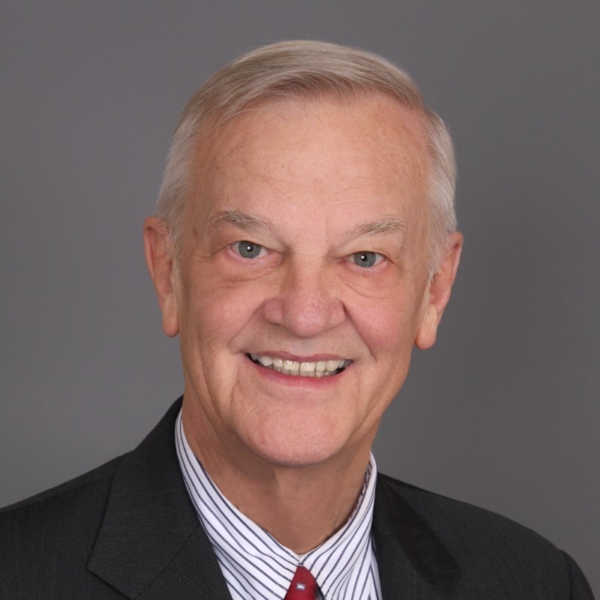
Peter Barton Hutt is a Senior Counsel in the Washington, DC law firm of Covington & Burling LLP, specializing in Food and Drug Law. He began his law practice with the firm in 1960 and, except for his four years in the government, has continued at the firm ever since. From 1971 to 1975 he was Chief Counsel for the Food and Drug Administration.
Since 1994, he has taught a full course on Food and Drug Law during Winter Term at Harvard Law School. He taught the same course at Stanford Law School during Spring Term in 1998. He is the co-author of Food and Drug Law: Cases and Materials (Foundation Press, 1st edition 1980, 2nd edition 1991, 3rd edition 2007, 4th edition 2014), and has published more than 175 book chapters and articles on Food and Drug Law and on health policy.
He has represented the national trade associations for the food, prescription drug, nonprescription drug, dietary supplement, and cosmetic industries. While at FDA he drafted the legislation that became the Drug Listing Act of 1972 and the Medical Device Amendments of 1976, and beginning in 1962 he has participated in the drafting of major legislation amending the Federal Food, Drug, and Cosmetic Act. He has testified before the House and Senate more than 100 times either as counsel accompanying a witness or as a witness.
Mr. Hutt has been a member of the Institute of Medicine (IOM) of the National Academy of Sciences since it was formed in 1971. He has served on the IOM Executive Committee and other NAS and IOM committees. He recently served as a member of the Working Group on Innovation in Drug Development and Evaluation for President Obama’s Council of Advisors on Science and Technology (PCAST). He served on the Science Review Subcommittee of the FDA Science Board to review the FDA science needs in order to perform its regulatory mission, and published a major analysis that resulted in Congress doubling FDA appropriations. He also recently served on the Panel on the Administrative Restructuring of the National Institutes of Health and on the Working Group to Review Regulatory Activities within the Division of AIDS of the National Institute of Allergy and Infectious Diseases. He is a member of the Board of Directors of the AERAS Global TB Vaccine Foundation, the Foundation for Biomedical Research, the California Healthcare Institute, and the Institute of Health Policy Analysis. He serves on a wide variety of other academic and scientific advisory boards, on the Board of Directors of venture capital start-up companies, and on the Advisory Boards of venture capital firms.
Mr. Hutt has served on the IOM Roundtable for the Development of Drugs and Vaccines Against AIDS, the Advisory Committee to the Director of the National Institutes of Health, the NAS Committee on Research Training in the Biomedical and Behavioral Sciences, the NIH Advisory Committee to Review the Guidelines for Recombinant DNA Research, the National Committee to Review Current Procedures for Approval of New Drugs for Cancer and AIDS established by the President’s Cancer Panel of the National Cancer Institute at the request of President Bush, the Keck Graduate Institute of Applied Life Sciences, one of the Claremont Colleges, and five Office of Technology Assessment advisory panels. He was a member of the New Foods Panel of the White House Conference on Food, Nutrition and Health and authored the panel report. He has twice been a councilor of the Society for Risk Analysis and has served as Legal Counsel to the Society as well as the American College of Toxicology.
During the 1960s, Mr. Hutt litigated pro bono cases on behalf of homeless alcoholics and drug addicts. He co-argued the only alcoholism case ever heard in the United States Supreme Court, Powell v. Texas, and then drafted the legislation that created the National Institute of Alcohol Abuse and Alcoholism and the National Institute of Drug Abuse. Based on this work, two-thirds of the States have repealed their statutes that had made public intoxication a criminal offense.
He was named by The Washingtonian magazine as one of Washington’s 50 best lawyers (out of more than 40,000) and as one of Washington’s 100 most influential people; by the National Law Journal as one the 40 best health care lawyers in the United States; and by Global Counsel as the best FDA regulatory specialist in Washington, DC. Business Week referred to Mr. Hutt in June 2003 as the “unofficial dean of Washington food and drug lawyers.” In naming Mr. Hutt in September 2005 as one of the eleven best food and drug lawyers, the Legal Times also referred to him as “the dean of the food-and-drug bar.” In April 2005, Mr. Hutt was presented the Distinguished Alumni Award by FDA. In May 2005, he was given the Lifetime Achievement Award for research advocacy by the Foundation for Biomedical Research. The Best Lawyers of America selected Mr. Hutt as the 2013 FDA Lawyer of the Year for Washington, DC.
Jeffrey E. Jacob, SM
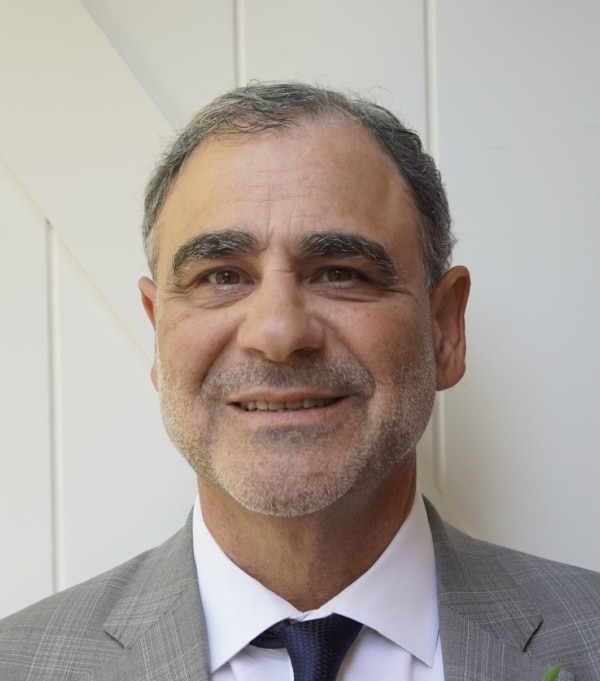
In addition to his role on C-Path’s Board, Mr. Jeffrey Jacob also serves on the Board of Research Corporation Technologies. He is also the principal of Tucson Pharma Ventures LLC, an Arizona-based biopharmaceutical development, consulting and investment firm. Throughout his career, Mr. Jacob has created technology-based startup companies and supported the expansion of existing companies in both the physical and life sciences. Mr. Jacob is a founding board member and previously served as the Chief Program Officer of Critical Path Institute (C-Path); he was responsible for creating C-Path’s business plan and initial programs.
Between 1987 and 2004, Mr. Jacob worked with Research Corporation Technologies (RCT), most recently as its Senior Vice President. During this time, he led the transformation of the company from a patent development and licensing organization to an early stage technology incubation and venture development firm. Mr. Jacob has a master’s degree in engineering and a master’s degree in Technology and Policy from the Massachusetts Institute of Technology.
Shaun A. Kirkpatrick, MA

Shaun KirkpatrickMr. Shaun Kirkpatrick is president and chief executive officer of Research Corporation Technologies (RCT) in Tucson, Arizona, and serves on the company’s Board of Directors. Kirkpatrick oversees RCT’s BioVentures investment portfolio and technology development and licensing activities in North America, Europe and Australia. In addition to overseeing company-wide matters, he manages a portfolio of technology investments and companies in the biomedical sciences for RCT. He also plays an active role in creating new companies around novel therapeutics and biomedical platforms, and serves as executive management during the incubation phase. Mr. Kirkpatrick received his master’s degree in international economics and science/technology in international economics from Johns Hopkins University School of Advanced International Studies in Washington, D.C., and Bologna, Italy.
He graduated summa cum laude from the University of Arizona in Tucson with dual undergraduate degrees in economics and ecology/evolutionary biology. He also studied at the London School of Economics, the University of Kansas and Eastern Michigan University. RCT is a technology investment and management company that provides early/seed-stage funding and development for promising biomedical companies and technologies originating in the world’s universities and research institutions.
Alan G. Levin, MS, CPA

Alan Levin served as Executive Vice President & Chief Financial Officer of Endo Health Solutions Inc. from June 2009 until September 2013. Prior to joining Endo, Mr. Levin worked with Texas Pacific Group, a leading private equity firm, and one of their start-up investments. Before that, he was Senior Vice President & Chief Financial Officer of Pfizer Inc., where he worked for 20 years in a variety of executive positions of increasing responsibility. Mr. Levin received a bachelor’s degree from Princeton University and a master’s degree from New York University’s Stern School of Business. He is a certified public accountant and a member of the Advisory Board of Auven Therapeutics, a private equity fund, where he chairs the fund’s Audit & Risk Committee. In addition to Critical Path Institute, he is also a member of the Boards of Directors of Aceto Corp, a NASDAQ-traded company specialized in generics and pharmaceutical intermediate products, and Diffusion Pharmaceuticals LLC, a development stage oncology company.
James W. Newman, CPA
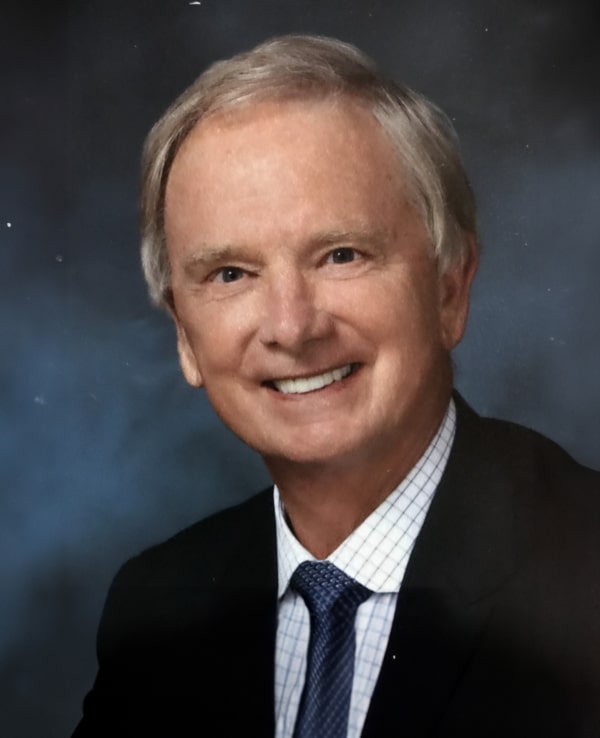
James W. Newman, CPA, is a longtime pharmaceutical executive with more than 30 years’ experience in pharmaceutical company senior management, finance, information systems, facilities operations and strategic planning. He founded Victory Pharma, Inc. in 2001 and served as Executive Chairman from 2001 – 2013. During his tenure at Victory, Newman was responsible for the acquisition and development of several proprietary products for the treatment of chronic pain. The company grew to approximately $100 million in annual sales prior to its sale to Shionogi in 2011. In 1998, Newman founded DJ Pharma, Inc. and served as President and CEO. The company expanded to 400 employees and $65 million in sales in two years. DJ Pharma sold at a 500 percent ROI for investors in 2001.
As Senior Vice President of Finance and Administration for Dura Pharmaceuticals, Inc., Newman redirected the company from a biotech to a pharmaceutical sales and marketing organization. He was responsible for organizing and completing its IPO and for four secondary and three private offerings to expand the market capitalization to more than $2 billion in six years. During his active retirement, Newman serves on the board of several charitable organizations and on the Executive Committee of the Pacific Crest Trail Association.
Tomas Salmonson, PhD, MSc

Dr. Tomas Salmonson has deep expertise in pharmacokinetics, bioequivalence, clinical trial methodology, clinical drug development and regulatory affairs and is currently partner at Consilium Salmonson & Hemmings. He left the Medical Products Agency in February 2019 after more than 30 years at the Swedish agency and the European regulatory network. He chaired the CHMP at the EMA between 2012 and 2018. Before that he was a member of CHMP representing Sweden between 1999 and 2012. During his last 10 years there, he also represented the EU at the ICH Steering /Management Committee and the ICH Assembly. Salmonson obtained his Ph.D. from Faculty of Medicine Uppsala University, Uppsala, Sweden and an M.Sc. from Uppsala University. He did postgraduate research at the University of California in San Francisco in the mid-80s.
Salmonson has published over 60 publications in different areas including pharmacokinetics and regulatory affairs. In 2016, he received the DIA Outstanding Contribution to Health Award, the Pharmacist of the Year in Sweden in 2017 and the TOPRA Lifetime Achievement Award in 2018.
Advisors to the Board
Janet Woodcock, MD
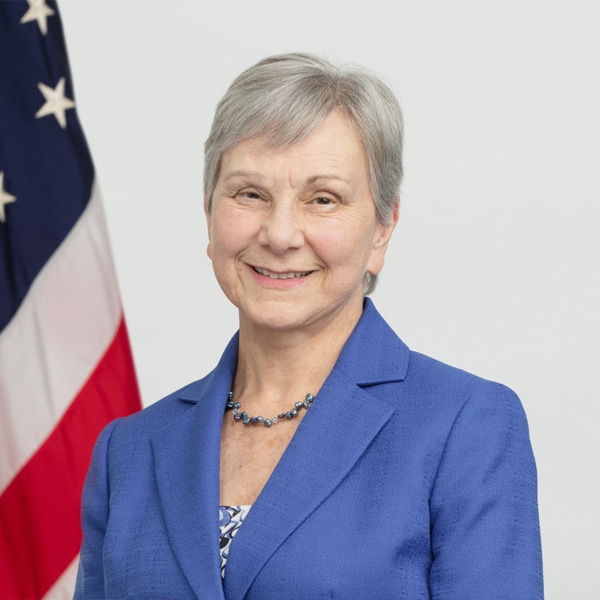
Janet WoodcockDr. Janet Woodcock is the Director of the Center for Drug Evaluation and Research within the United States Food and Drug Administration. Dr. Woodcock has served the FDA as Deputy Commissioner and Chief Medical Officer, Deputy Commissioner for Operations, and Chief Operating Officer. In these roles, she oversaw scientific and medical regulatory operations. Dr. Woodcock served as Director of the Center for Drug Evaluation and Research from 1994 to 2005. She previously held other positions at the FDA including Director of the Office of Therapeutics Research and Review, and Acting Deputy Director of the Center for Biologics Evaluation and Research. Dr. Woodcock received her medical degree from the Fienberg School of Medicine from Northwestern University and completed further training and held teaching appointments at Pennsylvania State University and the University of California in San Francisco. She joined the FDA in 1986.
The Honorable James C. Greenwood
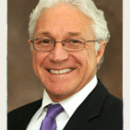
James C. Greenwood is President and CEO of the Biotechnology Industry Organization (BIO) in Washington, D.C., which represents more than 1,200 biotechnology companies, academic institutions, state biotechnology centers and related organizations across the United States and in more than 30 other nations. BIO members are involved in the research and development of innovative healthcare, agricultural, industrial and environmental biotechnology products. BIO also produces the annual BIO International Convention, the world’s largest gathering of the biotechnology industry, along with industry-leading investor and partnering meetings held around the world.
Since his appointment in January of 2005, he has markedly enhanced the trade association’s capacity for increasing both its staff and budget by nearly 50 percent. BIO is now a world-class advocacy organization playing a leading role in shaping public policy on a variety of fronts critical to the success of the biotechnology industry at the state and national levels as well as internationally. Mr. Greenwood represented Pennsylvania’s Eighth District in the U.S. House of Representatives from January 1993 through January 2005. A senior member of the Energy and Commerce Committee, he was widely viewed as a leader on health care and the environment. From 2001 to 2004, Mr. Greenwood served as Chairman of the Energy and Commerce Committee Subcommittee on Oversight and Investigation with oversight authority over issues in the full committee’s vast jurisdiction. He led hard-hitting investigations into corporate governance at Enron, Global Crossing and WorldCom; terrorist threats to our nation’s infrastructure; and waste and fraud in federal government agencies.
Prior to his election to Congress, Mr. Greenwood served six years in the Pennsylvania General Assembly (1981-86) and six years in the Pennsylvania Senate (1987-1992). Mr. Greenwood graduated from Dickinson College in 1973 with a BA in Sociology. From 1977 until 1980, he worked as a caseworker with abused and neglected children at the Bucks County Children and Youth Social Service Agency. Mr. Greenwood is married with three children and resides in Upper Makefield, Pennsylvania.
Peter B. Corr, MD, PhD
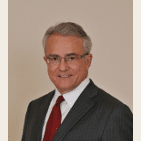
Peter CorrDr. Peter Corr is Co-founder and General Partner of Auven Therapeutics Management LLLP. Dr. Corr retired from Pfizer, Inc., where he was Senior Vice President for Science and Technology. He also headed worldwide pharmaceutical research and development for Pfizer. Previously, Dr. Corr served as Executive Vice President, Pfizer Global Research & Development, and President, Worldwide Development. He also served as Senior Vice President, Discovery Research, at Monsanto/Searle, and then President of Pharmaceutical Research and Development at Warner Lambert/Parke-Davis. Dr. Corr, who received his doctorate from Georgetown University School of Medicine, spent 18 years as a researcher in molecular biology and pharmacology at Washington University in St. Louis. Missouri.
His research has been published in more than 160 scientific manuscripts. He is a trustee of the Joyce Theatre Foundation in New York City, and a member of the National Academies’ Institute of Medicine (IOM) Committee on Conflict of Interest in Medical Research, Education, and Practice, the IOM Forum on Drug Discovery, Development, and Translation, and the IOM Committee on Accelerating Rare Diseases Research and Orphan Product Development.
ShaAvhrée Buckman-Garner, MD, PhD
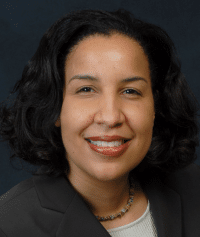
Dr. ShaAvhrée Buckman-Garner is currently the Director of the Office of Translational Sciences (OTS), Center for Drug Evaluation and Research (CDER), U.S. Food and Drug Administration (FDA). OTS is comprised of the Office of Biostatistics and the Office of Clinical Pharmacology. OTS provides oversight to CDER research involving human subjects as well as CDER regulatory science research. OTS is responsible for providing coordination for Critical Path initiatives across CDER in partnership with individual CDER offices.
Dr. Buckman-Garner served as Deputy Director for OTS prior to accepting the position as Director. Before joining OTS, Dr. Buckman-Garner served as a medical team leader in the Division of Pediatric Drug Development, Office of Counter Terrorism and Pediatric Drug Development, CDER. Dr. Buckman-Garner received her medical degree and doctorate (with an emphasis on molecular cell biology) from the Washington University School of Medicine. Dr. Buckman-Garner completed Pediatric specialty training at Baylor College of Medicine.
Emeritus Leadership
Martha A. Brumfield, PhD
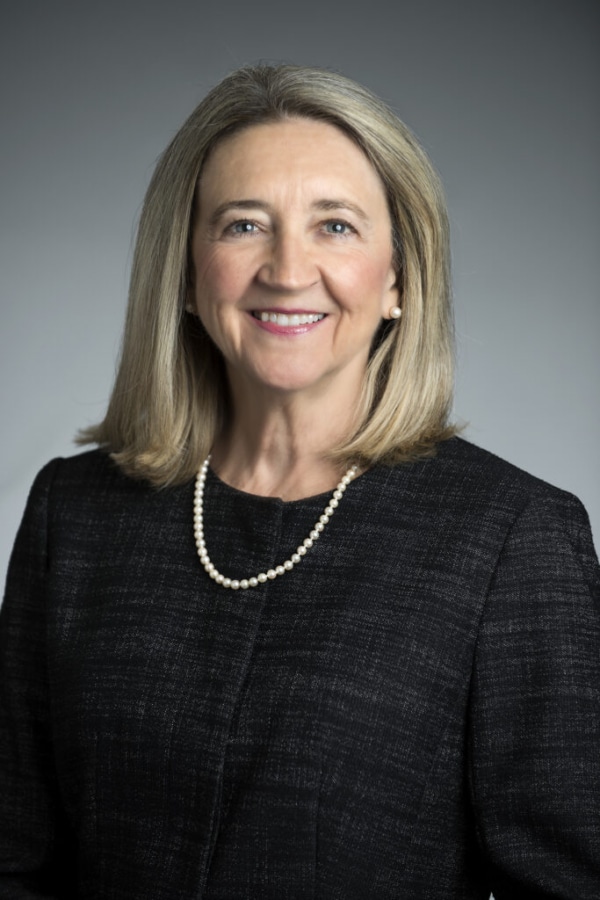
Martha A. Brumfield, PhD, is the former President and Chief Executive Officer of Critical Path Institute, an Arizona-based non-profit (501(c)(3)). In this role, Brumfield led the institute in its mission to catalyze the development of new tools to advance medical product innovation and regulatory science, which is accomplished by leading teams that share data, knowledge, and expertise resulting in sound, consensus-based science. Brumfield assumes the new role of Special Advisor to the CEO in April 2019. Previously she served as Critical Path Institute’s Director of International & Regulatory Programs. In that position, she helped guide international program development and provided regulatory expertise to consortia. She is also Associate Professor, College of Pharmacy, The University of Arizona.
Brumfield brings 20 years of experience from Pfizer Inc., most recently as senior vice president of worldwide regulatory affairs and quality assurance. There, she led a global team that supported lifecycle pharmaceutical research, development, and commercialization through creation and implementation of regulatory strategies and quality assurance oversight. Brumfield also played a key role in managing the broader company relationships with global regulators, trade associations, academics, and others on regulatory policy issues. She served on corporate governance initiatives including the planning and implementation of mergers and acquisitions and led her departments through these periods of significant change.
She recently served as Chair of the Board of Directors for the Regulatory Affairs Professional Society (RAPS) and currently serves Director for the RAPS Affiliate Board. She also serves as Director and Secretary/Treasurer for the Board of Institute for Advanced Clinical Trials for Children, and Director for the Parkinson’s Wellness Recovery Board. She is currently serving on the National Academies’ consensus study commissioned by U.S. FDA titled “Mutual Recognition Agreements in the Regulation of Medicines.” She has served on and contributed to prior NASEM consensus committees focusing on global regulatory systems and on falsified and substandard drugs. She serves on the Business Advisory Board to The University of Arizona’s BIO5 Institute and the External Advisory Committee to Vivli, a nonprofit focused on data sharing.
She also has her own consulting practice (Martha A. Brumfield LLC) focusing on various global regulatory initiatives and regulatory science programs. She has delivered educational workshops on regulatory and clinical trial topics in Asia. Other areas of focus in her practice include excellence in clinical trial conduct and pharmacovigilance, facilitation of scientific consortia, and programs supporting patient access to medicines.
Brumfield earned a B.S. and an M.S. in chemistry from Virginia Commonwealth University, a Ph.D. in organic chemistry from the University of Maryland, and served as a post-doctoral fellow at The Rockefeller University.
Daniel M. Jorgensen, MD, MPH, MBA
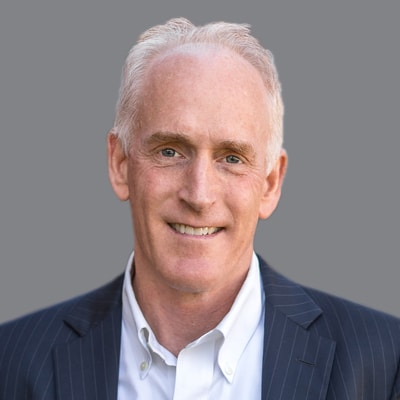
Dr. Jorgensen is an accomplished physician executive with more than 24 years of experience in the biopharmaceutical industry, in both small and large companies, public and private, including C-level positions for the past 11 years. In these roles, he has worked closely with a broad range of investors, strategic partners, and scientific experts, while building exceptional teams. His background includes comprehensive research, development, and commercialization experience for small molecules, biologics/vaccines, and devices across multiple therapeutic areas, particularly infectious diseases, immunology/inflammation, diabetes, and neuroscience. Prior to joining C-Path, Dr. Jorgensen was CEO of AxoProtego Therapeutics where he oversaw a biotechnology platform addressing neurodegeneration in areas of high unmet need. Earlier in his career, during his 10 years at Pfizer, Dr. Jorgensen was the Global Clinical Leader for azithromycin and was named Pfizer’s first Vaccine Development Team Leader, playing a key role in multiple FDA meetings, submissions, and approvals. Prior to joining Industry, Dr. Jorgensen was an Epidemic Intelligence Service (EIS) Officer at the Centers for Disease Control & Prevention (CDC), focusing on infectious disease outbreaks, vaccine accessibility, and refugee health, and thereafter, held several public health positions, including Montana State Medical Officer. Dr. Jorgensen was educated at Yale (BS); Univ. of Wisconsin (MD); Univ. of Washington (MPH); and Yale (MBA), with board certifications in Pediatrics, Infectious Diseases, and Preventive Medicine.
Joseph Scheeren, PharmD

Dr. Scheeren has worked in R&D in the pharmaceutical industry for more than 35 years in the United States, China and Europe with increasing responsibilities. Prior to joining C-Path, he led the Regulatory Affairs Department at Bayer for 15 years. Since January 2019, he has served as Adjunct Professor at Peking University for Regulatory Sciences in the Department of Clinical Research. Dr. Scheeren serves on Advisory Boards at the Center for Innovation in Regulatory Science, the Regulatory Affairs Track at Yale University, the Center of Regulatory Excellence in Singapore and the School of Pharmacy at the University of Arizona. He is also a foreign member of the Academie Nationale de Pharmacie in France, and a lecturer at Yale University. Dr. Scheeren studied pharmacy at the University of Leiden.
Raymond Woosley, MD, PhD

Raymond WoosleyPrior to founding Critical Path Institute in 2005, Dr. Raymond Woosley was Vice President for the University of Arizona (UA) Health Sciences Center and Dean of the UA College of Medicine. He also served as Associate Dean of Clinical Research and Chair of the Department of Pharmacology at Georgetown University School of Medicine. Dr. Woosley was a professor at Vanderbilt University Medical School and the first US scientist for GlaxoSmithKline’s initial US operations. Dr. Woosley earned his doctorate in Pharmacology from the University of Louisville and his medical degree from the University of Miami. He completed post-doctoral training in pharmacology, internal medicine and clinical pharmacology. Dr. Woosley’s research has been published in over 265 peer-reviewed publications and 50 book chapters. He is a member of the National Academy of Science’s Institute of Medicine’s Drug Forum.


